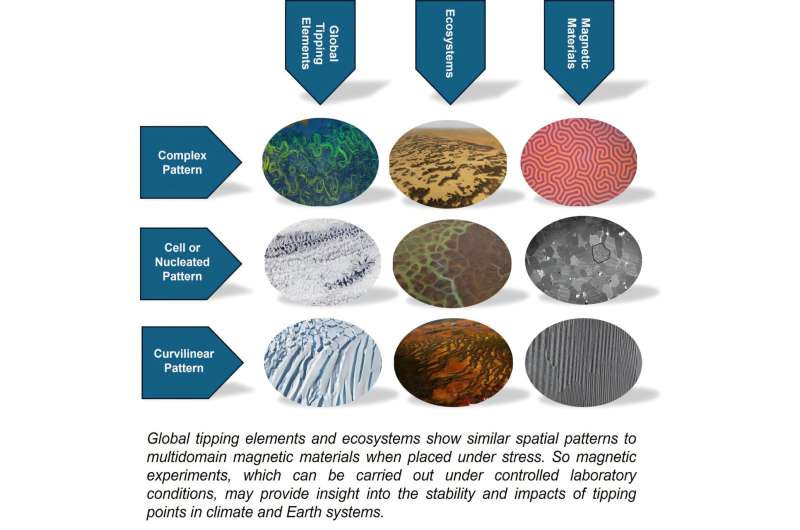
A recent study published on July 18, 2025, in the journal One Earth, has uncovered significant insights into how ecosystems may collapse, revealing that these patterns can resemble the behavior of magnetic materials under stress. Led by Professor John Dearing from the University of Southampton, the research challenges the long-held belief that climate tipping points occur exclusively in sudden bursts.
The collaborative effort with researchers from Rothamsted Research, Bangor University, and Edinburgh University indicates that some ecosystems might be experiencing gradual collapses that remain unnoticed, which could have grave implications for climate policy and the resilience of the planet. “Some systems snap. Others sag,” stated Professor Simon Willcock of Rothamsted Research, emphasizing the need for a reevaluation of how we understand tipping points in critical ecosystems such as forests, ice sheets, and ocean currents.
To explore this phenomenon, the team turned to an unlikely comparison: magnetic materials. In laboratory settings, researchers can manipulate magnets between different states using external fields. The response of these materials under stress mirrors how ecosystems might react to environmental pressures. Their findings revealed that simpler, more homogeneous structures tend to exhibit abrupt, irreversible changes, akin to “hard” tipping points. In contrast, more complex systems show gradual changes, or “soft” tipping, as internal components adjust over time.
Understanding these dynamics sheds light on why large and diverse ecosystems—like rainforests and ocean currents—can seem stable even while they are undergoing significant internal changes. The study outlines several key insights:
1. Complex systems reorganize gradually under stress, obscuring early warning signs of potential collapse.
2. Accelerated climate change heightens the risk of sudden transitions, even in systems typically characterized by gradual change.
3. Systems that are more likely to change gradually might be easier to restore, provided action is taken in a timely manner.
4. Viewing ecosystems at inappropriate scales can lead to the oversight of critical warning signs.
The authors caution that inaction could prove disastrous. Delayed responses to environmental stress can allow pressures to build unnoticed, similar to “frogs unaware that the water is boiling.” “Our work suggests we may already be crossing tipping points without realizing,” Professor Dearing noted. He highlighted the urgency of addressing climate change, stating that it is essential to slow its pace to prevent catastrophic collapse and to buy time for ecosystems to adapt and recover.
Co-author Professor Roy Thompson added that laboratory observations of tipping points in magnetic materials provide a controlled environment to understand complex systems, which cannot always be tested directly in natural ecosystems. This comparative approach enables researchers to gain insights into the global climate system without relying solely on computer models.
The findings underscore the critical need for refined definitions of tipping points, increased investment in high-resolution monitoring, and immediate actions to mitigate environmental stressors. “This work flips the script on climate risk,” said Willcock. “Not all tipping points are abrupt. Some are slow and silent—and we may already be inside them. If we wait for ecosystems to scream, we’ll have waited too long. The real danger lies in systems that whisper while they fall apart.”
The study calls for urgent attention to these subtle shifts within ecosystems, emphasizing the importance of understanding the complexities involved in global change. For further details, the full study is available in One Earth under the title “Reconciling global tipping point theories: insight from magnetic experiments.”






